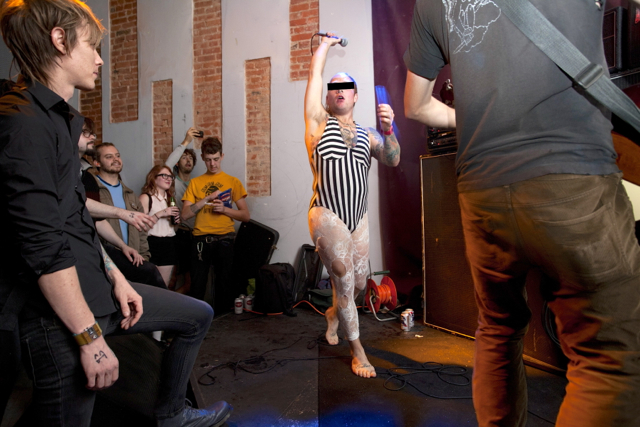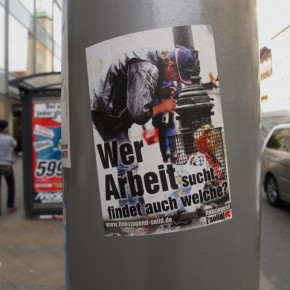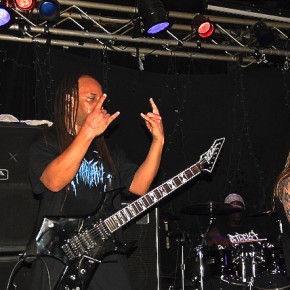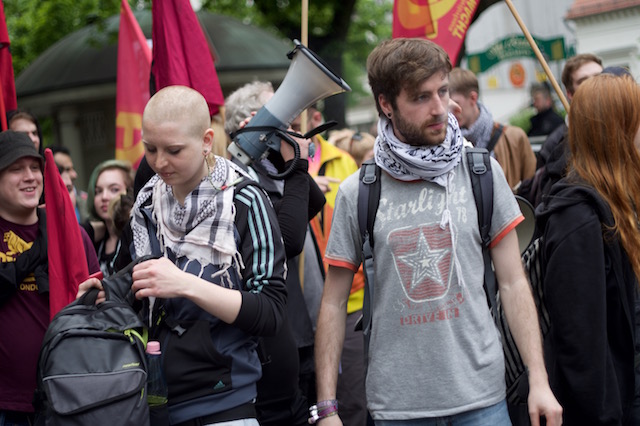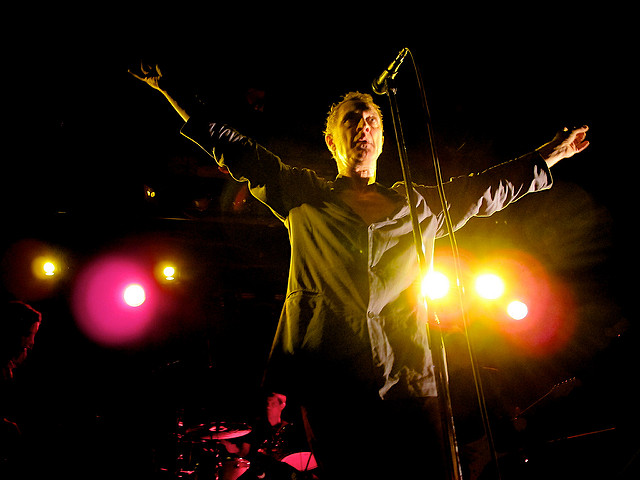+HIRS+ is a Philadelphia duo dedicated to harsh noise and queer politics. Their motto, as emblazoned on their t-shirts, is “looks like hell, sounds like shit, no gods, no cops.” The band’s singer, Jenna Pup, sat down with me to discuss sampling, what it’s like being a queer band in the grind scene, and the role of music in delivering political messages.
She also spoke about how the band goes about creating its songs, which largely consist of 30 seconds worth of pre-programmed beats, guitar riffs, samples, and screaming. With a growing audience, the band spent two weeks touring Australia earlier this year.
The +HIRS+ catalogue, including their most recent LP, The First 100 Songs, is available for free from Bandcamp.
Souciant: What’s the purpose of +HIRS+?
JP: To have fun and make music that I love with my best friend. (We) bridge the gap between trans, queer, [with] a genre of music that is normally occupied by straight tough dudes that can say, do, and get away with whatever they want.
Souciant: Live, you’re always dressed up. Would you call that a costume?
JP: No, not at all. It’s definitely not a costume. Some people say, “Oh, cross-dressing, this is like a shtick or something, right?” No, this is all me. This is as much of [myself] as I can actually express.
Souciant: Do you think of +HIRS+ as a political band?
JP: I do now. Every band I’ve ever been in has been some sort of political or ethical punk band. And by ‘punk’ I don’t mean the type of music, but the ethics.
Souciant: Is +HIRS+ more music or more politics?
JP: It’s half and half. I don’t write songs that I don’t like. The music is important, but so is the message. And even though a lot of times it seems like it might be a little goofy, like satanic or whatever [laughs], it’s mostly things that we’re pissed about.
Souciant: What’s the positive political aspect of being in a grind band?
JP: Broadening horizons. Say we play a show that’s for non-questioning, totally normal – using that word very loosely – metal dudes, metal girls, or whomever. And they’re thinking, “I’m here to see fast music but what the fuck is happening? Why is this person that I’m assuming is a man wearing women’s clothing and makeup? And all these samples? There’s a lot of gay shit going on.” And when I say gay, I mean literally gay.
[However] there are tons of fast, heavy bands with queer or trans people into them. I got an e-mail from someone who was, like, “I ordered this one shirt but I’d like to get it in a different size because I’m transitioning” and I was, like, “Oh my fucking God.” It was so sweet to have someone tell me that and to have that person listen to our music.
Souciant: How do you think the message comes across during the live show? Is it how you’re dressed? Is it the music, the lyrics?
JP: It’s definitely not the lyrics, at least not at a show. They’re so short. I think it starts off with me. When there’s a +HIRS+ show, I get in whatever sexy outfit that I want to wear that night and hang out [before the gig.]
When I’m in that mode I’m also at my most comfortable, in theory. And so very flamboyant, very much as trans woman as I get. I think that starts a lot. If people haven’t seen +HIRS+ before they’re like, “Oh this person is in one of the bands? I’ll stick around and see what happens.”
Souciant: You’ve only played Philadelphia and Australia, but you’re getting more popular now, and just put out a new album. I assume you’re sending it out to more places than that?
JP: Yeah, I just put one in the mail to Singapore.
Souciant: How does the Internet help with reaching a queer audience?
JP: Huge. It’s easier for a queer kid, especially one that’s nervous about their surroundings. The kind who say to themselves, “I want to go to this basement and see these bands but people are going to call me a faggot or just treat me like shit because of what I look like or how I talk or something.” Being able to find that stuff on the Internet [is reassuring.]
Souciant: Your songs are sample heavy and average in length to what, about 35 seconds long?
JP: Yeah, about that. The LP is 100 songs in 40 minutes.
Souciant: Why do you use so many samples?
JP: The reason we use lots of samples is that way we can play 18 songs and our set’s still only about nine minutes. The samples do the talking for me.
Souciant: One of the samples is from [NWA’s] “Fuck the Police.”
JP: We sampled that because it’s a song about how cops are stupid.
Souciant: Has it caused any issues for you?
JP: I was terrified about this record coming out, because it has samples from Britney Spears, NWA, and movies from Warner Brothers and Fox. I never mentioned them [to the pressing plant.] Now we have [vinyl] stampers, so we can repress it if we need to.
Souciant: What’s the difference for you between playing a queer show versus playing a more standard grind gig?
JP: At a queer show there are more people complimenting my heels or whatever. Often, when it’s a room full of people who are queer or already exposed to us, and are allies, there’s a lot more applause and cheering because they’re, like, “Fuck yes, queers doing fast shit” and they’re über supportive. At a more normal hardcore show it’s like, “Whoa, these homos can really shred.”
Souciant: What’s more important: the message or the music?
JP: The message. If you do like the music but don’t get the message then there’s something a little off. And if you do hear the message and don’t like it, then I don’t want you listening to our stuff. As long as people get what we’re trying to throw out there, that’s what matters.
Photograph courtesy of Thomas Ignatius Puleo. Published under a Creative Commons license.
